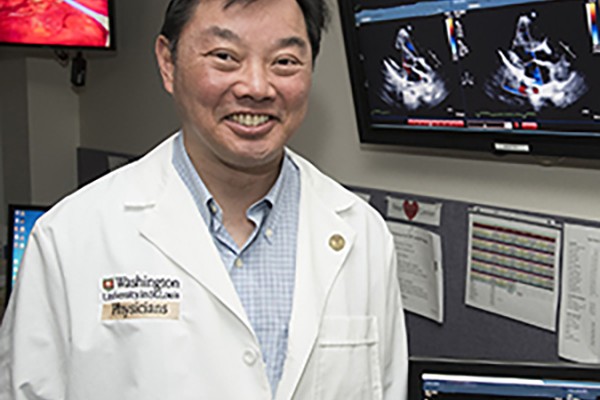Exercise for older mouse mothers lowers risk of heart defects in babies
Older mice genetically prone to bear offspring with heart defects can reduce this risk to that of younger mouse mothers with the same genetic defect through exercise alone, according to new research at the School of Medicine. The study, led by Patrick Y. Jay, MD, PhD, also suggests that the increased risk of congenital heart defects is tied to the age of the mother and not the age of her eggs.
New Year’s resolutions: 13 for ’13
As the holidays draw near, expect the usual onslaught of well-intentioned suggestions for lifestyle changes guaranteed to
make you healthier, wealthier and wiser in the new year. Talk is cheap, but these 13 New Year’s resolutions for 2013 are backed up by decades of research. If your resolve needs strengthening, click through the embedded web links to learn more
about the research behind the resolutions, including tips on using your
smart phone to quit smoking and the best way to pay down your holiday
debt.
Active lifestyle associated with less Alzheimer disease-related brain change among persons with APOE ε4 genotype
A sedentary lifestyle is associated with greater
cerebral amyloid deposition, which is characteristic of Alzheimer’s
disease (AD), among cognitively normal individuals with the ε4 allele of
the apolipoprotein E (APOE) gene, according to a report published
Online First by Archives of Neurology, one of the JAMA/Archives
journals.
Diet-exercise combo best for obese seniors
For obese seniors, dieting and exercise together are more effective at improving physical performance and reducing frailty than either alone. Although weight loss alone and exercise alone improve physical function, neither is as effective as diet and exercise together, which improved physical performance in seniors by 21 percent.
Consistent exercise associated with lower risk of colon cancer death
Consistent exercise is associated with a lower risk of dying from colon cancer, according to a new study led by Siteman Cancer Center researchers. The study is among the first to show that physical activity can make the disease less deadly.
Exercise may reduce Alzheimer’s disease brain changes
Walking, jogging and other forms of regular aerobic exercise may actually ward off the onset of Alzheimer’s disease pathology in the brain, suggests newly published research from Washington University in St. Louis.
Longer Life Foundation grants announced
The Longer Life Foundation has awarded grants to six research projects on issues related to aging at Washington University School of Medicine. Over the last 10 years, the foundation has awarded more than $2 million to the university to fund independent research into improving methods for predicting long-term mortality.
Moderate weight loss in obese people improves heart function
Obese patients who lost a moderate amount of weight by eating less and exercising more improved their cardiovascular health, new research at the School of Medicine shows.
Study finds most students gain weight during early college years
College eating habits can pack on extra pounds.New work from researchers at Washington University in St. Louis confirms that most students gain weight in college. Reporting in the Journal of American College Health, the research team found that about 70 percent of students gained a significant amount of weight between the start of college and the end of sophomore year.
Study finds most students gain weight during early college years
College eating habits can pack on extra pounds.College students talk about the “Freshman 15.” That’s the typical number of credit hours a full-time student takes during a semester. Some also claim it’s the number of pounds students gain eating dorm food and studying all night. New work from researchers at Washington University in St. Louis confirms that most students do, indeed, gain weight in college. Reporting in the Journal of American College Health, the research team found that about 70 percent of students gained a significant amount of weight between the start of college and the end of sophomore year.
View More Stories

